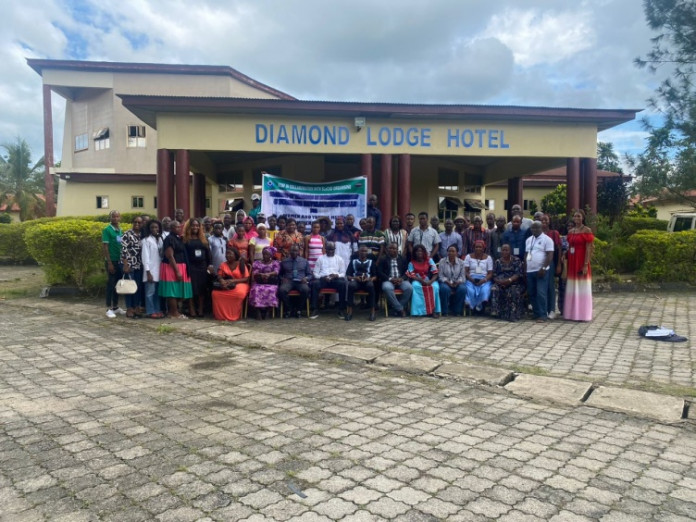By Alhaji Haruna Sani
The Sierra Leone Chamber for Agribusiness Development (SLeCAD) has successfully wrapped up a three-day Training of Trainers (ToT) program aimed at empowering women and youth in the agricultural sector. The initiative is part of the broader Feed Salone Project, which focuses on local food security and economic empowerment.
The program began with a session led by Madam Louise Chator, who provided insights on crafting effective business plans. Participants, after registering, took part in hands-on modules that covered essential topics like executive summaries, company overviews, and customer segmentation.
Attendees were organized into groups focused on key areas of agribusiness, including onion production, palm oil processing, and rice production and processing. They developed tailored business models, addressing legal frameworks, market analysis, and marketing strategies to prepare them for the practical challenges of starting and sustaining profitable enterprises.
SLeCAD’s Executive Secretary, Ahmed A. Nanoh, underscored the critical role of empowering youth and women in agriculture for Sierra Leone’s economic advancement. He highlighted that this initiative aligns with regional efforts across four African countries to strengthen micro, small, and medium enterprises (MSMEs) in agribusiness.
Dr. Fadel, a representative from the African Capacity Building Foundation (ACBF), discussed Africa’s staggering $35 billion annual rice import cost and urged Sierra Leone to capitalize on its agricultural potential. He emphasized that consistent, high-quality production and skill enhancement are vital for sustainable economic growth.
Koidu City’s Mayor reinforced the Feed Salone Project’s mission, calling for increased use of locally processed materials, improved storage capacity, and continuous skill development. A District Council Representative pointed out the importance of collaborative efforts in addressing challenges like financing, storage, and pest control in onion production.
The second day featured a session led by David Lahai, focusing on project activity planning and risk management. Madam Chator returned for additional workshops on marketing and sales planning, while James S. Koroma provided essential financial insights, including projections and value chain analysis.
Practical exercises allowed participants to create value chain models for their selected products, solidifying their training. The final day included an extensive discussion on entrepreneurship, where Koroma covered business structures, intellectual property, and franchising.
Key stakeholders, including the District Council Chairman and Ginnah Bockarie, the District Agricultural Officer from the Ministry of Agriculture and Forestry, highlighted the significance of community-based agribusiness and the goals of the Feed Salone Project, such as import substitution, job creation, and empowerment of women and youth.
As the program concluded, facilitators encouraged participants to apply their newly acquired skills to foster resilient agribusinesses, significantly contributing to Sierra Leone’s food security and economic development. The ToT training has positioned women and youth as pivotal players in the agricultural landscape, aligning with the vision of a self-sustaining, food-secure Sierra Leone.




